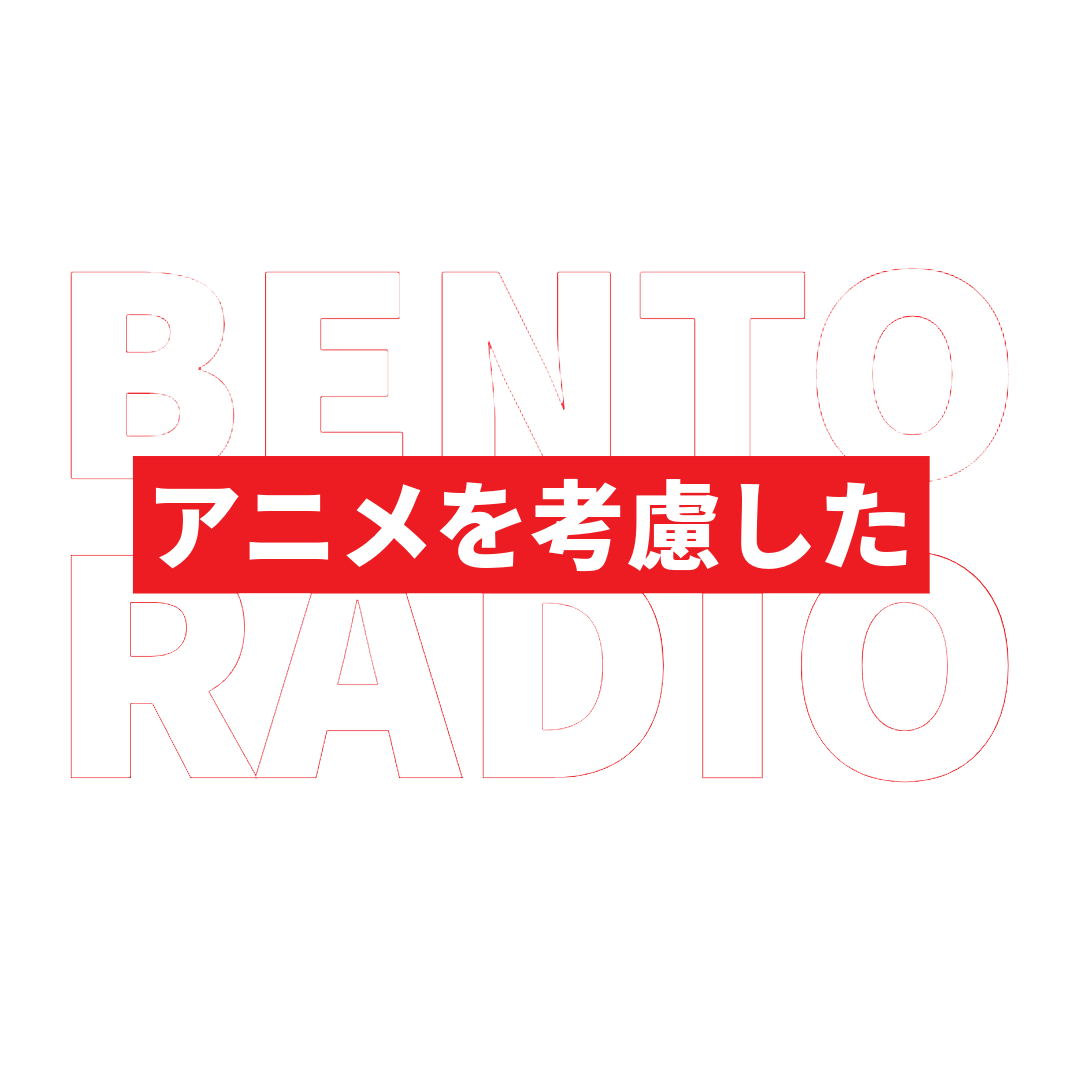¥£$: Anime That Count Every Yen

As I write this, Amarican anime fandom is currently facing a genuine hurdle, with the dual challenges of the elimination of the de minimis exemption, a rule that exempts all goods under $800 from import taxes and the tariffs being imposed across the board by the US, resulting in many companies temporarily suspending shipping to the country. The second also driving up prices for everything from cheap artist alley key chains at Conventions to video game consoles, both new and old. Being an otaku has always been an expensive hobby, especially outside of Japan. Still, with even more pressure being put on our wallets than usual, I started to think about money-focused anime.
Anime is a costly art form. A typical 30-minute TV anime episode costs between US$140,000 and US$180,000 to produce. Despite that, there aren’t many anime that are exclusively focused on money or economics. There are countless money jokes and a lot of thought about characters' finances in many shows, but Money isn't often a real focus in a lot of shows. The reason for this is similar to why you don't usually see cell phones in movies. Money, like smartphones, is tied up in a massive amount of baggage. Instead of dealing with all that largely negative complexity, many stories understandably sidestep such issues so the audience can more easily focus on the central narrative. However, there are More than a few shows that focus either partially or entirely on Money and even economics.
Black Lagoon
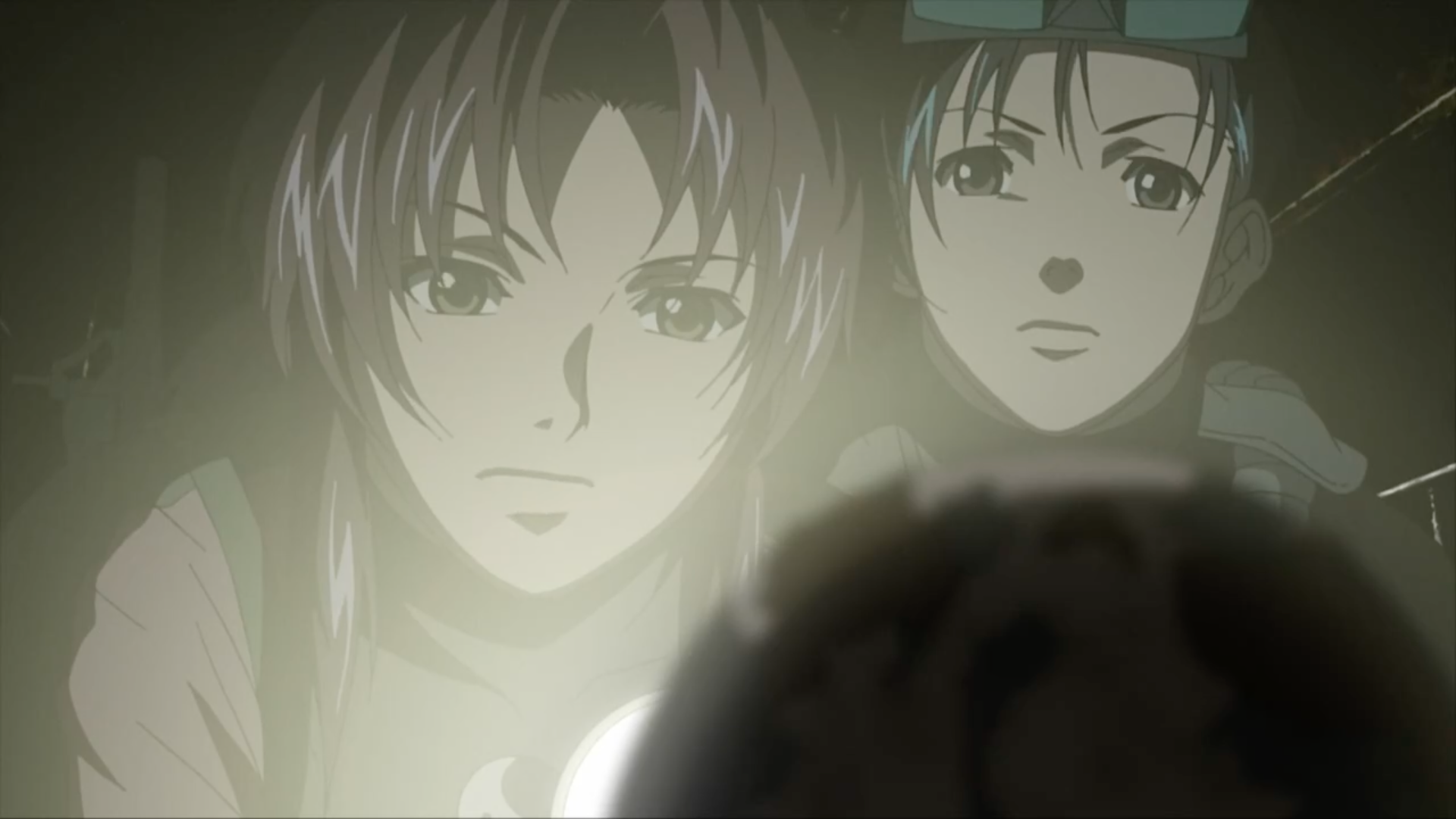
Let's start with Black Lagoon. While the show doesn't overtly focus on money or finance, they are both ever-present. It's particularly interesting to see Rock's romanticized relationship with criminal life compared to the other members of the cast. In episode 5, Revy and Rock start a conversation about her obsession with money, which comes to a head two episodes later, when Rock learns a little about where Revy's head is at. The conflict also says something important about both characters because Rock may not have lived a glamorous life, but he didn't really want for much money-wise, whereas Revy has lived through a lot of pain, abuse, and poverty for much of her life. This shapes both characters' relationship with there finances in a way that feels like it's more than just surface-level characterization, since for Revy, the pirate life feels like where she ended up, rather than what she chose, where Rock is the opposite.
Eden of the East
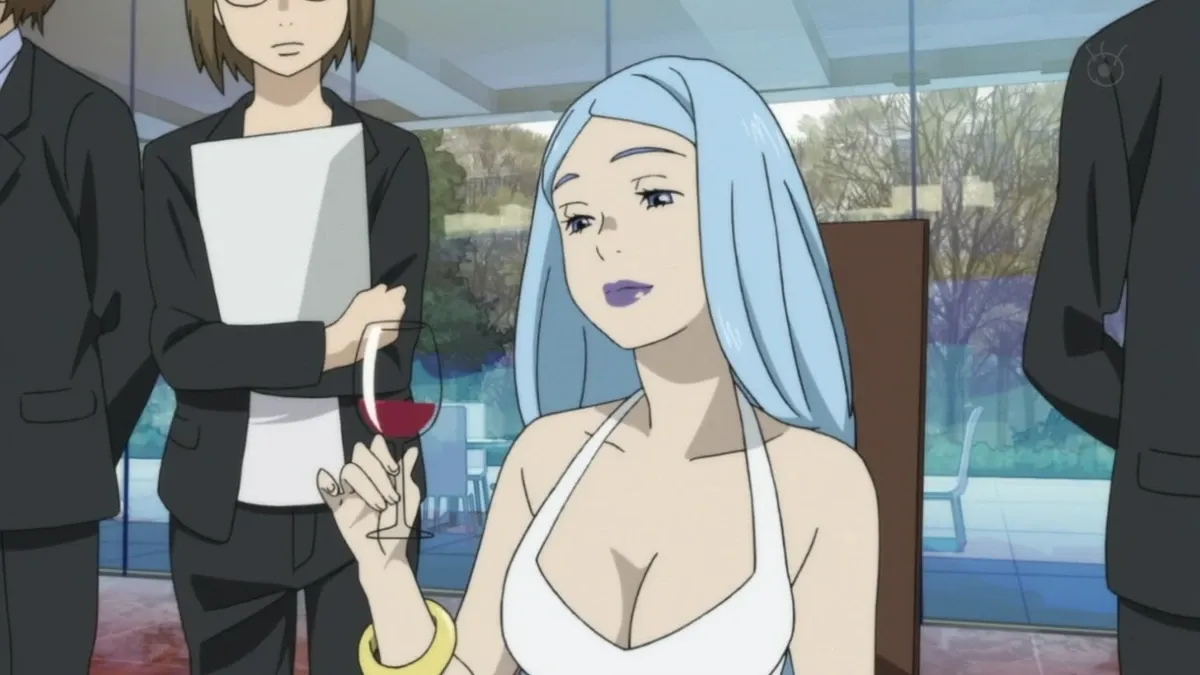
Eden of the East presents a unique perspective on finance, money, and the opportunities that arise when one has it. The core premise of the show is that a very rich Billionaire named Mr. Outside gives twelve people ¥10,000,000,000 and tells them to save Japan. Each contestant has access to a private concierge who will do or purchase anything they ask. Throughout the show, the main character, one of the minted billionaires, Akira, is paired alongside Saki, the love interest and quasi co-protagonist. While Akira is endlessly rich and lives in an abandoned shopping mall, Saki struggles to find a job and lives with her sister's family because she can't afford her own place. The entire Show has countless displays of wealth, usually shown by the 12 newly minted billionaires the show calls Selecao. The twelve Selecao are revealed to be pulling the strings and shaping Japan in ways that range from one opening a highly advanced hospital to another abducting and killing countless men. The whole show seems to suggest that the impossibly wealthy Selecao are beyond the reach of the law simply because of the money they have access to. The only people they're accountable to are each other. At the same time, Saki and her friends are left to struggle to find their footing in a social structure that seems to actively hate them for trying.
Noragami
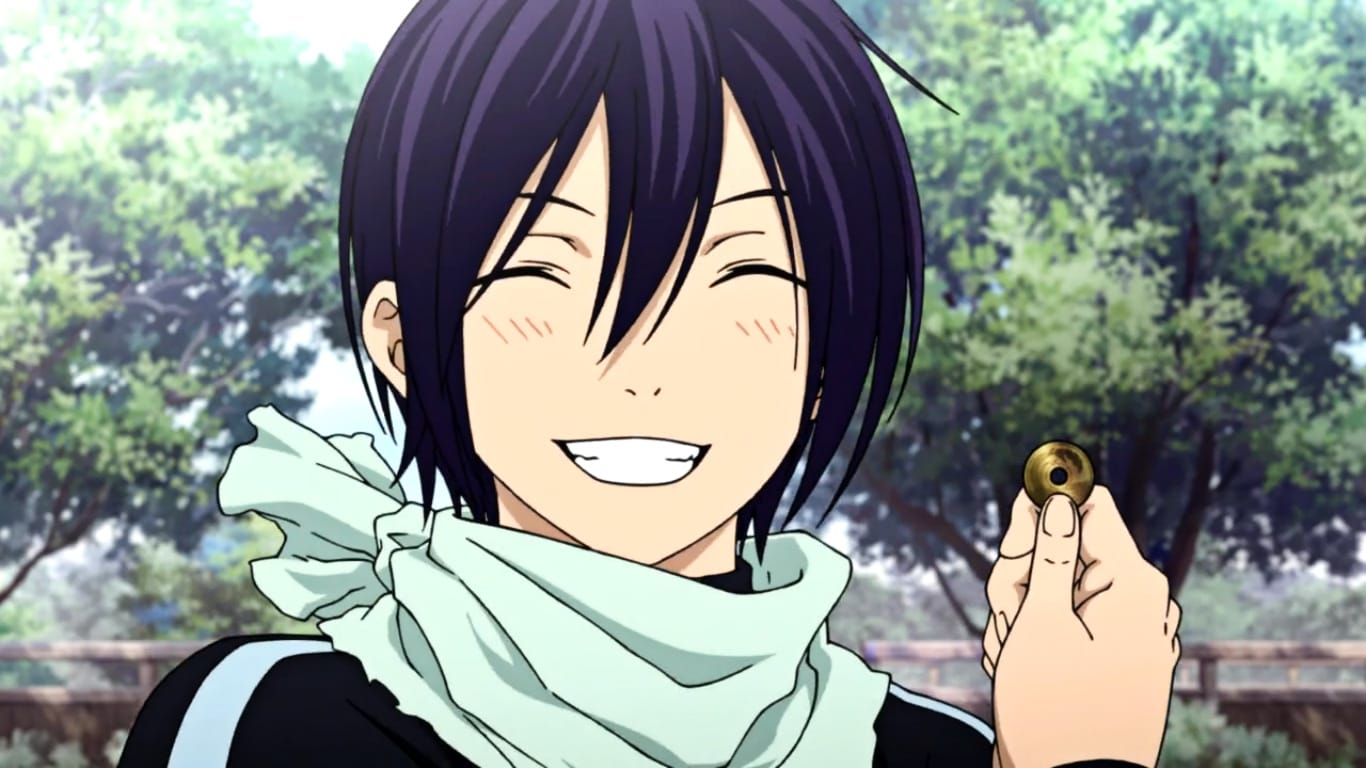
Noragami is in the complete opposite direction despite Yato looking like an alternate version of Akira. Yato is constantly flat broke and homeless. However, the show puts a real focus on him working and taking jobs that other gods in the show couldn't care less about. Many of the gods in Noragami have prominent, opulent shrines and ask humans to make offerings of ¥500 or more to have their requests heard. Yato, however, actually does something for people for the cost of ¥5. These tasks range from finding a girl's lost cat to cleaning multiple people's bathrooms. The show has plot reasons why many of the gods in its extended cast are wary of Yato or even hate him, but he actually helps with the everyday problems that people struggle with.
Spice and Wolf

Spice and Wolf is a love story between an ancient god named Holo, the wise wolf, and a traveling merchant by the name of Craft Laurence. Although the Show centers around that relationship, the actual plot points are all directly focused on Lawrence's work as a traveling merchant. Even going so far as to delve into the economics of medieval currency purity and manipulation at one point in the show. The thing that makes the finer plot points even more compelling is that Holo often finds ways to help Lawrence maximize his profits while also playing the part of audience sergeant, since while she understands economics as a whole, she doesn't always understand the finer points of the deals her partner is wrapped up in.
C: The Money of Soul and Possibility Control
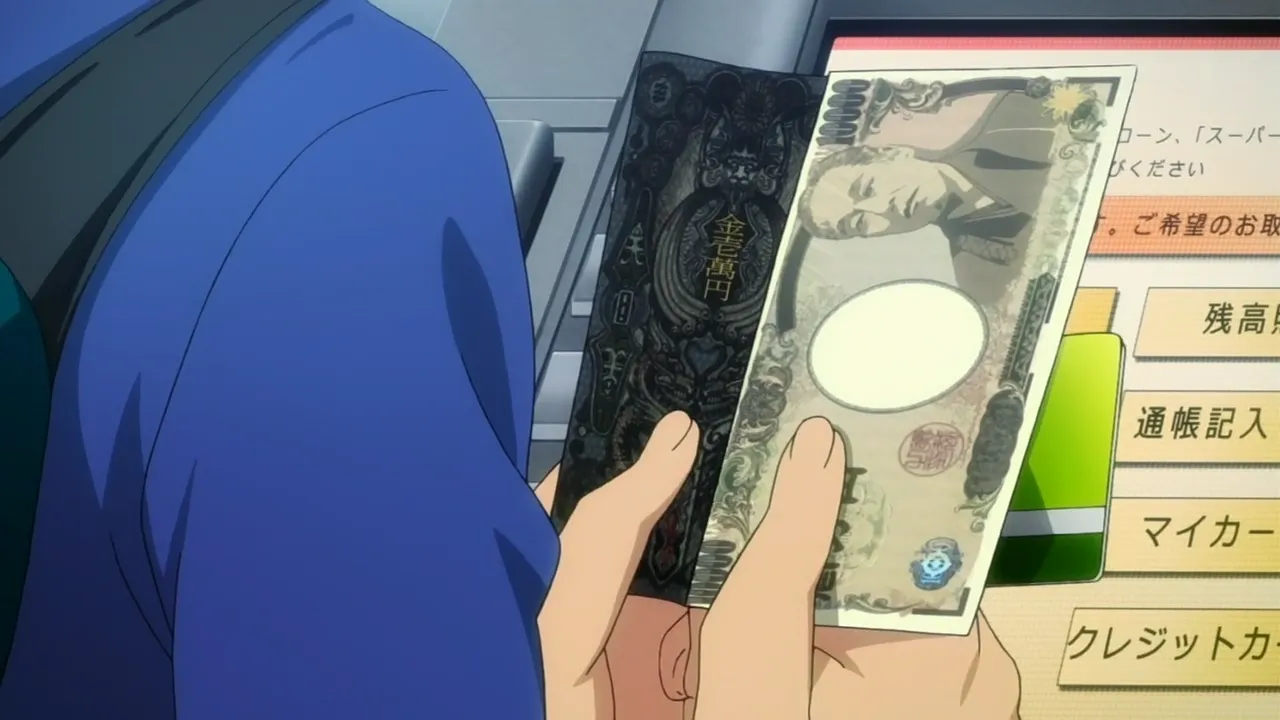
For our last stop on this tour, let's talk about C: The Money of Soul and Possibility Control, or C for short. Imagine if Digimon were about the post-2008 collapse economy. All the shows I've discussed up until now don't really target the "investor" class; instead, they use money as a way to focus on their respective shows' main characters. C on the other hand, it is trying to say something about the financialization of society and the adverse effects that the extremely wealthy investor class can have on a world that they can largely ignore, even as it falls apart. That idea is best expressed in its primary antagonist, Souichirou Mikuni, who lives almost entirely in the financial district, which in the show's world is an alternate dimension, and is attempting to take control of Japan's entire economy and its fate in turn. I've refrained from making real-world comparisons in this article until now, but it's appropriate here. Souichirou Mikuni clearly mirrors the private investment firms that, by their very nature, enter companies only to exploit them for profit and leave them to go bankrupt when they're finished. The show presents this progression in an interesting way. Throughout the show, Midas Money is mixed in with real yen. It's slow at first, but the progress of the release speeds up as the show draws closer to its finale. This feels eerily reminiscent of the progression of the housing crisis leading up to 2008 or the lead-up to the Greek debt crisis.
As tariffs rise, and shipping costs climb even basic goods edge toward luxury pricing. It's hard not to see the irony in how few anime actually tackle money head-on. The titles we've looked at, Black Lagoon, C, Eden of the East, Spice and Wolf, and even the perpetually broke Yato in Noragami—all show us different relationships with wealth, scarcity, and the systems that govern them. Some, like Eden of the East, explore how massive fortunes can reshape entire nations, for better or worse. Others, like Spice and Wolf, make currency and trade central to the drama, giving viewers an economics lesson wrapped in romance and adventure. Then there's C, which doesn't just hint at financial anxiety, it personifies it, turning economic collapse into a literal battleground with stakes as high as a nation's future. What unites all of these series is the way they use money not just as a plot device, but as a mirror. The shows mentioned reflect our fears about poverty, inequality, and power. Sometimes subtly, sometimes with all the subtlety of a stock market crash. As real-world economics squeeze both fandom itself and the greater population I can't help but wonder how anime as an art form will portray our current economic reality. after all art reflects life.
